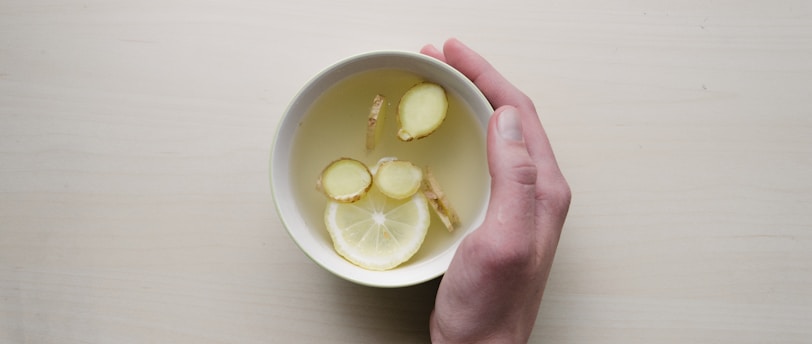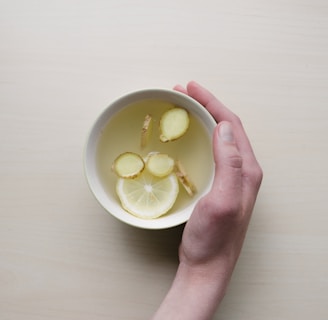The Role of Cannabis in Holistic Wellness
Explore how cannabis can be incorporated into holistic health practices, including yoga, meditation, and natural healing, to promote overall well-being.
HEALTH AND WELLNESSLIFESTYLE AND INTEGRATION
Keith Kalm
1/14/20254 min read


Understanding Holistic Wellness
Holistic wellness refers to a comprehensive approach to health that recognizes the interconnectedness of the mind, body, and spirit. This philosophy emphasizes that optimal well-being cannot be achieved by focusing solely on physical health or treating symptoms in isolation. Instead, holistic wellness advocates for an integrative perspective that considers multiple dimensions of wellness, including physical, emotional, spiritual, social, intellectual, and occupational aspects.
The physical dimension encompasses traditional health practices such as exercise, nutrition, and preventive care. Emotional wellness involves understanding and managing one's feelings, while spiritual wellness pertains to seeking meaning and purpose in life. Social wellness emphasizes building healthy relationships and connections, and intellectual wellness encourages lifelong learning and critical thinking. Lastly, occupational wellness relates to personal satisfaction in one’s career and balance between work and other life areas. Each of these dimensions interacts with and influences the others, underscoring the need for a holistic perspective.
Embracing a holistic approach can lead to improved health and well-being, as it encourages individuals to recognize their unique needs and strive for harmony between all areas of life. This includes making conscious lifestyle choices that promote not just physical health, but also emotional support and spiritual growth. One such integration can be the incorporation of natural elements, like cannabis, into wellness practices. Cannabis has been noted for its potential benefits in relieving stress, alleviating anxiety, and enhancing emotional well-being. By considering how various aspects of life connect and impact each other, individuals can create a more balanced and fulfilling lifestyle that supports holistic wellness.
Cannabis and Its Therapeutic Properties
Cannabis has garnered significant attention in recent years for its therapeutic properties, largely attributed to its complex chemical composition. The two most well-known cannabinoids in cannabis are tetrahydrocannabinol (THC) and cannabidiol (CBD). THC is primarily responsible for the psychoactive effects of marijuana, but it also offers various medicinal benefits, including pain relief and appetite stimulation. In contrast, CBD does not produce a high and is praised for its potential to alleviate anxiety, reduce inflammation, and mitigate stress without the intoxicating effects associated with THC.
The interplay of these cannabinoids, along with the presence of terpenes—aromatic compounds that contribute to the scent and flavor of cannabis—enhances its therapeutic potential. For instance, the terpene myrcene is believed to possess sedative properties, which may further aid in promoting relaxation and sleep. Similarly, limonene may have uplifting effects, contributing to mood enhancement and stress relief. The unique combination of cannabinoids and terpenes creates an entourage effect, wherein the therapeutic impacts of cannabis are amplified when multiple compounds work synergistically.
Scientific studies supporting the health benefits of cannabis are increasing. Research has shown that cannabis can be effective in managing chronic pain, providing an alternative to traditional pain medications, which often carry a risk of addiction. Additionally, multiple studies indicate that both THC and CBD can significantly reduce symptoms of anxiety and depression, making it a valuable tool for individuals seeking holistic approaches to mental health. Anecdotal evidence abounds in the wellness community, illustrating personal accounts of how cannabis has improved overall well-being, enhancing the quality of life for many consumers. Thus, cannabis emerges not just as a recreational substance but as a promising adjunct to holistic health practices.
Incorporating Cannabis into Yoga and Meditation
The integration of cannabis into yoga and meditation practices presents a unique opportunity for practitioners seeking to enhance their mindfulness and relaxation experiences. Cannabis is known for its potential to heighten sensory awareness, allowing individuals to engage more fully with their surroundings and their internal state during these practices. By fostering a greater connection between the mind and body, cannabis can help practitioners delve deeper into their yoga poses and meditation sessions.
When considering the incorporation of cannabis, it is crucial to select the appropriate strain. Indica strains are often recommended for their relaxing properties, which can aid in calming the mind and enhancing the meditative experience. Sativa strains, on the other hand, may promote creativity and energy, making them suitable for more dynamic yoga practices. Hybrids can provide a balance, offering the benefits of both categories to suit individual preferences. Each practitioner's response to cannabis can vary, necessitating experimentation and adjustment based on personal tolerance and desired outcomes.
Dosage is another critical factor; starting with a low dose is advisable, especially for those new to combining cannabis with their wellness practices. It allows individuals to gauge their reactions without overwhelming effects. Some practitioners recommend consuming cannabis approximately 30 minutes prior to beginning yoga or meditation to fully experience the enhancements it can provide. Incorporating deep breathing techniques into the session can further amplify the calming effects of cannabis, promoting a centered state of awareness.
Many practitioners who have intertwined cannabis use with their yoga or meditation practices report positive experiences, noting increases in focus, creativity, and overall enjoyment of their sessions. These anecdotal accounts highlight the importance of personal exploration in understanding how cannabis can complement and enrich one’s holistic wellness journey.
Natural Healing and Cannabis: A Holistic Approach
The integration of cannabis into natural healing practices represents a progressive approach to holistic wellness. Traditionally, natural remedies such as herbal medicine, aromatherapy, and acupuncture have played essential roles in promoting well-being. The incorporation of cannabis complements these modalities, enhancing their therapeutic effects and enriching the overall healing experience.
Cannabis contains a variety of cannabinoids, terpenes, and flavonoids that interact with the body’s endocannabinoid system, offering potential benefits such as reducing inflammation, alleviating pain, and promoting relaxation. For instance, when used alongside herbal medicine, cannabis can enhance the bioavailability of other active compounds, potentially leading to more effective treatment outcomes. Aromatherapy can also benefit from the use of cannabis oil, which can provide additional calming effects when diffused or applied topically.
To effectively incorporate cannabis into daily routines, individuals can start by experimenting with various forms, such as oils, capsules, or edibles, ensuring to choose products tailored to their specific health goals. It is advisable to begin with lower doses and gradually increase, allowing the individual to better assess their body’s response and achieve optimal results. When considering acupuncture, the combined effects of cannabis and acupuncture might foster an even deeper state of relaxation and facilitate a better healing process.
However, some safety considerations should be kept in mind. It is crucial to consult with healthcare professionals who are knowledgeable about cannabis to tailor a holistic health plan that aligns with personal health needs. Additionally, understanding the legal status of cannabis in one’s region is vital to ensure compliance with local laws and regulations. Ultimately, by carefully blending cannabis with other natural remedies, individuals may embark on a comprehensive approach to holistic healing.
© 2025 IntentionalCannabis.com
Premium Domain Sales & Digital Marketing Solutions
Interested in owning this unique and impactful brand? IntentionalCannabis.com is for sale! Contact us today to learn more about this exciting opportunity.
